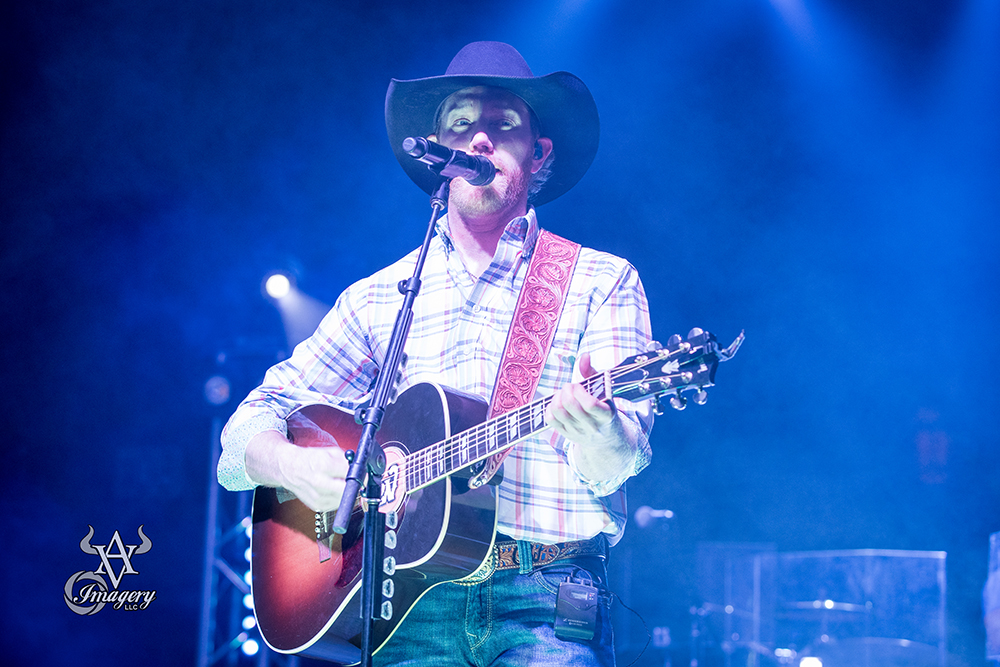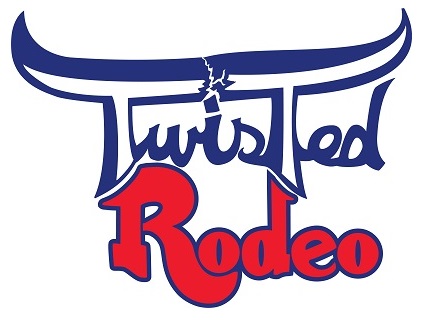
(PHOTO BY PHILLIP KITTS, AVID VISUAL IMAGERY)
From ranching to rodeo, Wyoming country artist tells his life through song
Chancey Williams sees himself as much more than a musician or a country artist.
He’s a rancher and a cowboy who happens to love playing music, and his songs reflect his lifestyle and his raising. He’s also an athlete, a two-time state champion wrestler at Moorcroft High School in his hometown in northeastern Wyoming.
He combined it all and rode broncs professionally for a while. He qualified for the National High School Finals Rodeo, then went to Casper (Wyoming) College and the University of Wyoming to compete in rodeo. He’s ridden at the College National Finals Rodeo twice and has been a winner at the Cheyenne Frontier Days Rodeo, the biggest event in his home state.
He knows what it means to be horseback and what it’s like to get bucked off a scary bronc, and fans can hear it in the tunes he plays with his group, Chancey Williams and the Younger Brothers Band.
“I’ve always felt like if I put out songs about cowboy, about rodeo, I’ve got to be an ambassador for the sport,” Williams said. “My lingo and lyrics have got to be accurate to represent the rodeo world. There’s been a lot of people in country music who sing about cowboys; the one thing I love about it the most is that I can back it up.
“It wasn’t like I just kind of rode broncs. Having the background and experience in rodeo backs up the stuff I’m singing about.”
Oh, he knows. He was the first artist since the late Chris LeDoux to perform at the Cheyenne Frontier Days after also being a contestant. Williams has a lifetime of ranching and rodeo to help vocalize his lyrics.
“My dad was a rancher, and my mother was a school teacher,” he said, noting that his father, Dennis, also was a bronc rider. “I really didn’t play music growing up.
“Our main focus growing up was rodeo and wrestling. I went to college to rodeo, and I just assumed I would rodeo forever. To go to college rodeos, I had to pick a degree, but I wasn’t really focused on music or anything other than bucking horses.”
That’s pretty much the way of life for those who raise families in rural Wyoming. Moorcroft is a community of less than 900 people, and it’s in the second least populated county in the least populated state. Everybody there knows everybody, and it was the perfect way for Williams to grow up. Being raised on a ranch teaches humility, the benefit of hard work, a respect and compassion for animals and a love for community.
During the cold of a Wyoming winter, Williams and his brothers were most often in the wrestling room. If it was wrestling season, that’s what they did. Dennis Williams was a 1969 state champion while wrestling for Moorcroft; his brothers both competed at the state tournament, just as he had done. In fact, Chancey Williams’ brother, Charlie, wrestled in college and coaches the program at Moorcroft High; he’s led the Wolves to nine state titles.
So, how did music come his way? He started a band for fun in high school and entered a talent show with a friend, Travis DeWitt. The two continued to perform while in college, making a little extra cash, some of which was likely used for rodeo entry fees.
“All growing up through elementary school, the music teacher would always give me the main part,” he said. “She kind of favored me, which made me want to be a performing. Me and a couple of buddies got together, and it went from there. People just started hiring us. We weren’t good, but we had a band. We figured out we could make some money; maybe we could do this through college and not have to have a job.”
While some entertainers have gained popularity a bit quicker than Chancey Williams and the Younger Brothers Band, he likes the steady roll of his career. As a Cinch endorsee, he wears cowboy every day, and his rise to more fame has come at a pace that is befitting of such. He’s played fairs and honkytonks. He’s opened for big-name artists and seen his music rise up the charts.
“It’s that feeling of performing in front of people,” he said. “Just the crowd’s reaction is what drives you. I guess it’s the same thing if you were getting on bucking horses; it’s in front of a crowd that you hope likes what you’re doing. Singing or riding broncs, it’s the physical part of it is appealing to me.
“Now that I write most of my stuff, it’s neat to see people singing the songs that I write.”
Some of it is going one better. A few years ago, the University of Wyoming came up with a slogan, “The World Needs More Cowboys,” and Williams realized the slogan needed an anthem. He wrote it, and now that song has continued spread the same message.
Whether it’s played before a rodeo or during a Williams concert or at halftime of a Wyoming football game, people are excited to hear about the world needing more cowboys, even if they’re cowgirls, too.
“The Wyoming marching band will play that song,” he said. “They sent me the score they had worked up for a marching band. It’s pretty neat. That’s pretty special; there are a lot of artists that have written a hit song that has been played by a marching band, but this is pretty cool for me.
“It’s not the act of being a cowboy; it’s about the life of being a cowboy. It’s about standing up for what you believe in, not getting pushed around. It’s about a respectful, good person, and we call those people cowboys in our industry.”
He’s certainly a cowboy, and the fact that he has a guitar on stage instead of a horse doesn’t change that. There are many similarities between touring bands and rodeo cowboys; they spend much of their lives on highways, preparing to perform night after night while meeting new people along the way. It’s right up Williams’ alley.
“We have a unique job, and we travel from town to town,” he said. “We loving the travel and meeting people. It’s the chase of a whole career. If someone would have handed me a record deal 20 years ago, it wouldn’t have meant as much. We grew up in an area where there’s not a big music scene.
“We had to learn everything from scratch.”
Consider it lessons learned. When he’s not on the road, he’s back at the ranch, but the music business is a big business, and he’ll handle any task that comes his way, whether it’s working while on the bus from one show to another or writing songs wherever he can.
“It’s got to be run like a business,” Williams said. “There are no other bands that will outwork us. We’re not afraid to hit it as hard as possible, do whatever we’ve got to do. I always remind people that I think our work ethic comes from growing up on a ranch. I think for some musicians, this is hard work. For me, the hardest day in music is still a pretty easy day in ranching.
“It’s fun to talk about something I built from nothing. I knew nothing about music. It would have been easier to pick ranching or rodeo for a career, but I’ve chosen this one. To do it at a national act level, it’s been really rewarding to learn along the way. I’m still at a point where I have my hand involved in everything. This business is my baby.”
His baby is maturing rather nicely, and it sounds magnificent.
